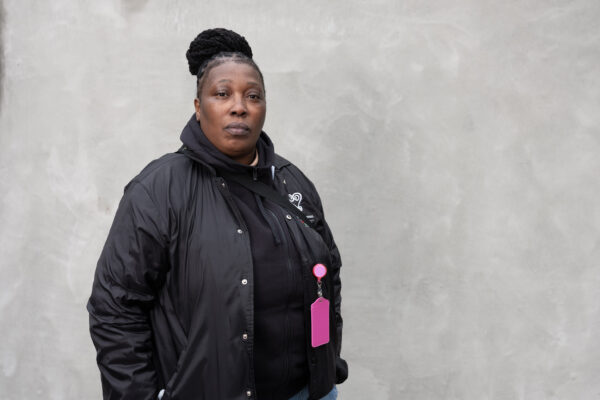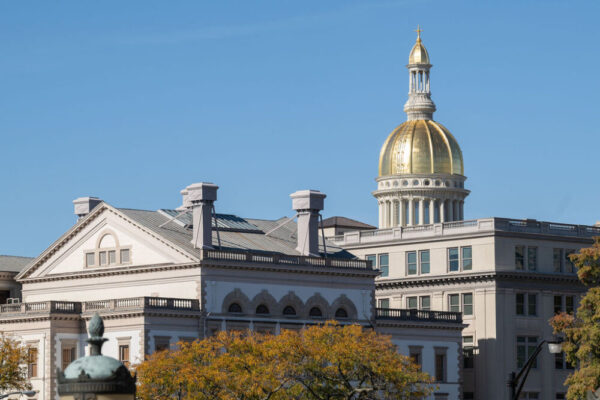The United States has had punitive drug policies in place since the late 1800s, beginning with laws targeting immigrants and Black people. These laws, based in fear and racism, have perpetuated over-policing for more than a century and led to the overdose death crisis. They have proven to be ineffective at reducing drug use and preventing overdose deaths and have instead furthered the marginalization of already vulnerable groups, and actively discourage people from seeking community resources and treatment.
The modern-day drug war began in the 1970s and was devised to control and criminalize Black and brown communities and anti-war protesters. Today, New Jersey continues to spend exorbitant amounts on drug law enforcement at the expense of proven community-based responses. Between 2010 and 2019, New Jersey spent over $1.2 billion annually on policing, prosecution, and incarceration stemming from drug criminalization while nearly 20,000 New Jerseyans died of a drug overdose.
Total departure from punitive policies is mandatory for overdose prevention measures to succeed. New Jersey must adopt public health approaches that prioritize community-based resources and harm reduction infrastructure that are proven to prevent overdose and provide further linkages to care and personal dignity. This is why the ACLU-NJ has called for the decriminalization of all drugs.
To hear more about the human toll that drug criminalization takes, we spoke with Ayesha Rogers, Outreach Worker for the Newark Community Street Team, who has felt the impact of this unjust system firsthand.
ACLU-NJ: The United States has had punitive drug policies in place since the late 1800s, continuing today with the perpetuation of the drug war that was devised to control and criminalize Black and brown communities – can you share how these punitive laws have affected you and/or your community?
Ayesha Rogers: Fast forward to today, the war on drugs typically refers to policies and initiatives starting in the 1970s aimed at reducing the illegal drug trade. However, these efforts have often led to racially biased outcomes with Black and brown communities. What has changed since the 1800s is that drug policies have evolved in complexity and scope. There’s ongoing debate about the effectiveness and fairness of drug laws and enforcement, with calls for reforms that address systemic inequities and focus more on public health rather than punitive measures alone.
ACLU-NJ: Can you imagine a future where New Jersey prioritizes the humanity and dignity of people who use drugs? What does that future look like? What does decriminalizing drugs mean to you?
AR: Investment in accessible and effective treatment programs, including medication-assisted treatment counselors and support for the needs of individuals with substance use disorders. Imagining and advocating for such a future involves considering the well-being and rights of individuals who use drugs as integral to public health and human rights. Many places around the world are already moving toward these approaches, recognizing the punitive measures alone have not effectively addressed substance use issues and often exacerbate harm.
ACLU-NJ: Research shows that harm reduction strategies – like syringe access programs, safer supply, access to naloxone, etc. – prevent overdose and provide further links to care and community resources for those who request it. Can you tell us how harm reduction programs – or a lack thereof – may have impacted your life?
AR: Harm reduction programs educate individuals about safer ways to use drugs, such as using clean needles. It reduces the risk of infections like HIV and hepatitis C. Overall, harm reduction programs prioritize the well-being and dignity of individuals who aim to mitigate the immediate risk associated with drug use. While fostering opportunities for individuals it improves their health and quality of life on their own terms.
ACLU-NJ: In a time of rampant misinformation and rejection of facts, assumptions are made every day about drugs and people who use drugs. Can you share how those assumptions have appeared for you/in your work and how you’ve challenged them?
AR: Assumptions are made to make those less fortunate look like drugs were the way of their life, where life sometimes takes you down roads you didn’t plan to go. We all fall short, we all make bad decisions, who are we to judge? Not all people who use drugs come from bad homes, life just happens and we all deserve to be met right where we are, not turned away because of our choices. We should love those that are in need to be loved and help those that want to be helped. We all deserve a second chance.



